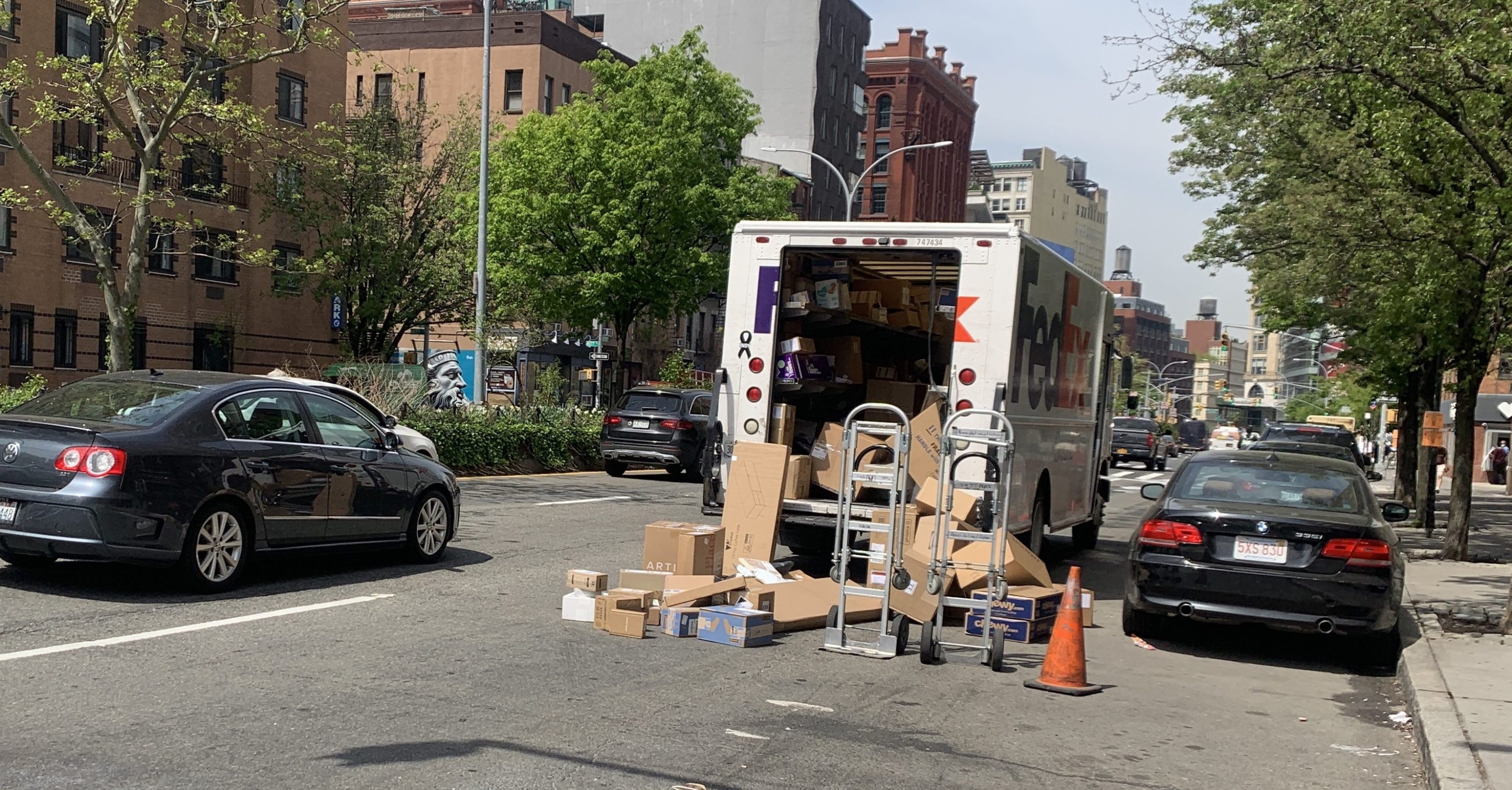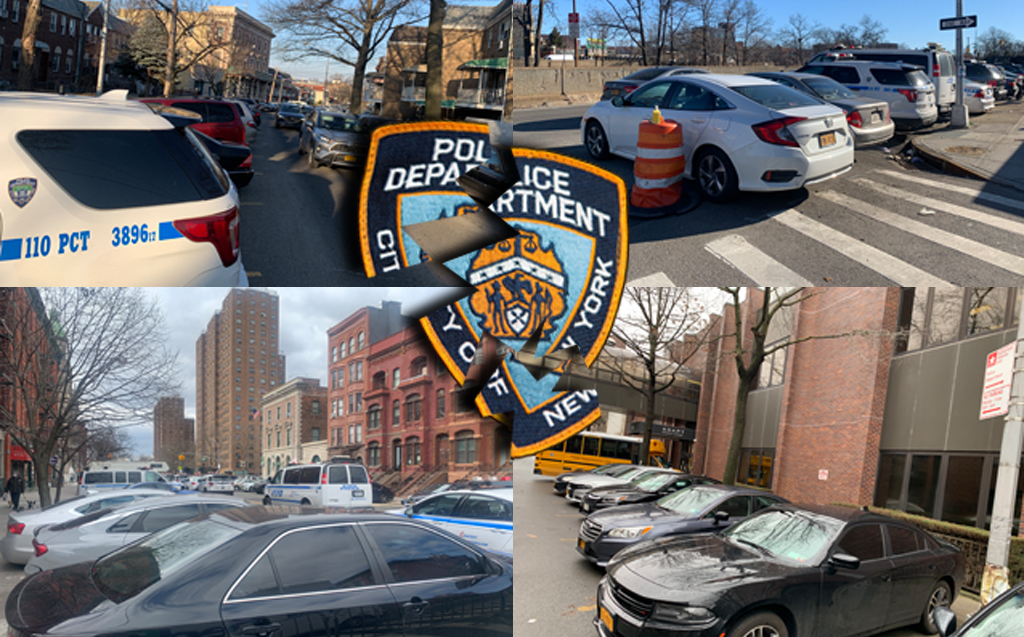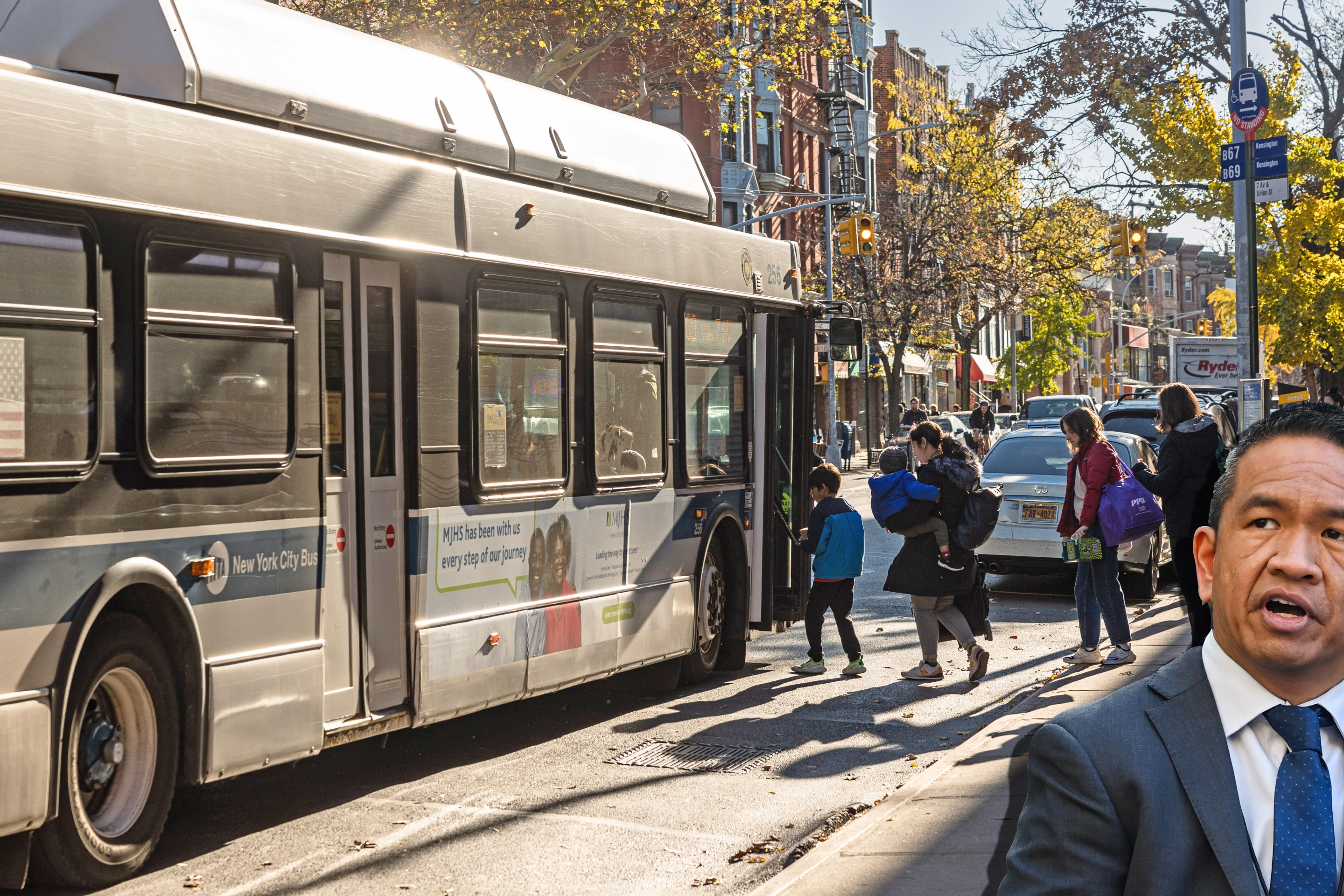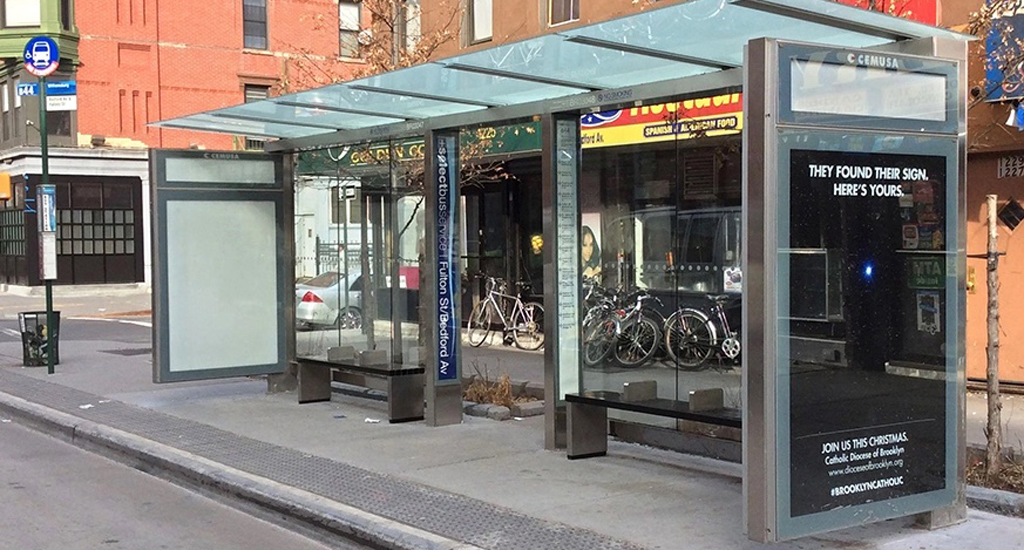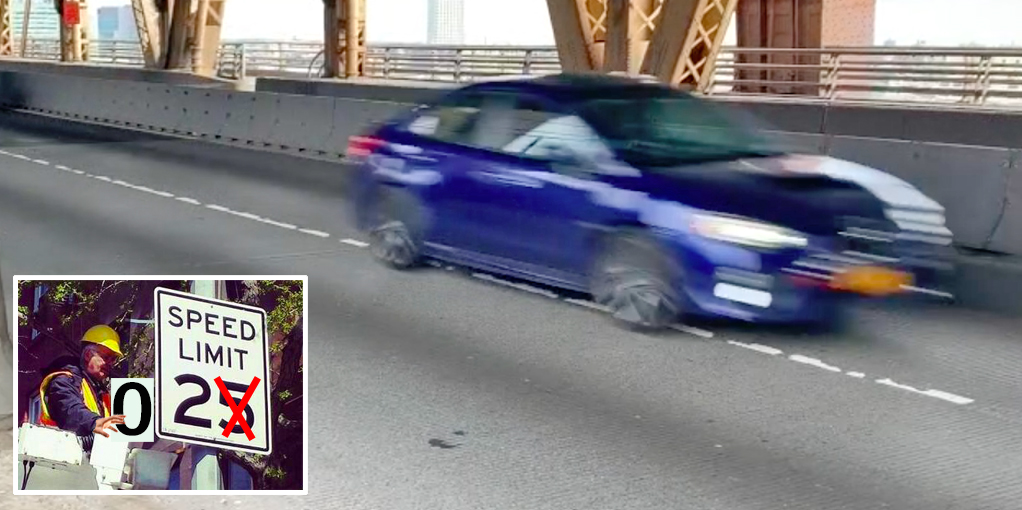New York City is taking another step forward in its attempt to get trucks off of its streets, this time by asking logistics companies what they need to make the switch to cargo bikes and other smaller delivery vehicles.
The Department of Transportation recently published a request for expressions of interest in which the agency asked freight companies and other possible participants in warehouse logistics to weigh in on what they want the city's future micro-distribution hubs to look like. The RFEI isn't looking for people to run a hub or for a place to locate it, but instead is gathering information in order to run the most seamless pilot it can.
Among the questions the DOT is trying to answer are who's interested in a micro-distribution center pilot, what those people would need to make a hub "efficient, sustainable and economically feasible," any land use issues or other regulations that could get in the way of operating a micro-distribution hub successfully, and how to best set a delivery hub up so it could run by multiple companies at once. The agency said it was part of an overall effort to reduce truck traffic and make last-mile delivery more environmentally friendly.
"DOT is committed to developing transformative and sustainable last-mile delivery solutions that reduces truck traffic on our streets, supports low-emissions transportation, and improve safety for all road users," said spokesperson Vin Barone. "This RFEI marks the first step toward developing a pilot program for microhubs that can deliver goods efficiently and equitably to New Yorkers."
It's a very small step forward for the city's efforts to bring its nascent cargo delivery bike program to another level and, to get delivery trucks off the road and the actual package distribution off the city sidewalks. When the city began its ongoing cargo bike pilot program, one of the issues it left open for future consideration was how it would step in to regulate the way that delivery companies, especially larger companies doing e-commerce delivery, use city streets and sidewalks as a staging ground for their packages. As e-commerce has become more and more prevalent in the city, oodles of stories have been written about the way that companies like Amazon and FedEx use the public right of way as staging ground for their deliveries in a city that simply loves to order crap off the internet.
"We kind of already see this type of activity on city streets, where you might see a parcel company park, their vehicle adjacent to a sidewalk and parcels are out on the street being sorted," said Tiffany-Ann Taylor, the vice president of transportation for Regional Plan Association. "It's not an ideal scenario."
The package spillage is enough of a problem in Manhattan that Borough President Mark Levine specifically made turning half of e-commerce deliveries into cargo bike deliveries by 2026 a campaign issue last year. At the time, Levine suggested that one way to bring more cargo bike deliveries to the city would be to change zoning rules to allow parking garages to serve as staging areas for deliveries by smaller vehicles, something that Taylor said is well within the range of a micro-distribution warehouse.
"The idea is that you have a centralized location, and they could be of various sizes, it doesn't always have to be huge. It could be small, or at scale with the neighborhood. I think when we say facility, the image that immediately comes to mind is a really big building," Taylor said. "But a facility could be maybe a surface parking, lots of which five parking spaces are designated for the storage of goods."
The upcoming micro-distribution hub pilot, which according to the RFEI is supposed to begin by July 1, 2023, is a chance for the city to take a big swing instead of just rely on business as usual, according to one industry player.
"I'm really looking for a commitment to a multi-modal site that incorporates rail and boat shipping," said Revolution Rickshaws CEO Gregg Zuman. "We could get a whole get a lot of interesting things going in a pilot program. The alternative is to do truck first truck to trike or cargo bike, but that's kind of boring, and it's relatively easy anyway. The city complains about trucks, but it does nothing at all about creating the infrastructure and a pathway and channels for superior supply chains and distribution movement that skip trucks."
Zuman also said a focus on Manhattan would make the most sense for the pilot, since congestion pricing is most likely going to begin during the pilot's lifetime, an idea with some foresight since traffic problems in London post-congestion pricing were driven in part by a flood of delivery vans on the streets.
New York can also look to other cities that have tried to tame the just in time logistics beast. In Paris, for instance, the city has set up what it calls "logistics hotels," mixed-use buildings that are warehouses for small van or cargo bike deliveries with data centers, offices and even sports facilities.
